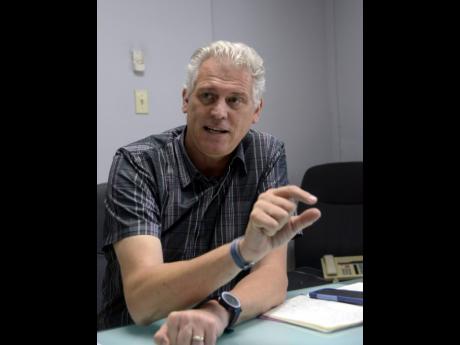CATCH the guns
America's new Caribbean arms trafficking law 'long overdue'
Security expert and former deputy commissioner of police, Mark Shields, has labelled the Caribbean Arms Trafficking Causes Harm (CATCH) Act, introduced in the United States (US) Congress to curb illicit arms trafficking from the US into the region, as “long overdue”.
The bill, presented by Congressman Joaquin Castro and Congresswoman Sheila Cherfilus-McCormick, alongside Senators Chris Murphy and Tim Kaine, aims to improve transparency and accountability within US anti-trafficking efforts and prevent US firearms from fuelling gun violence in the Caribbean.
If passed, the CATCH Act would strengthen efforts in the Caribbean region by requiring an annual report on the prosecution activities of the Coordinator for Caribbean Firearms Prosecutions of the Department of Justice.
Information required in the reports would include details on the number, destination, and method of transportation of firearms, ammunition, and firearms accessories.
It would also require details on coordination efforts with federal, state, and local law enforcement agencies, and coordination efforts with the Department of Justice and any regional or international organisations, such as the Caribbean Community (CARICOM).
While noting that the Act is a crucial step and demonstrates a proactive approach by the US Congress in tackling a transnational problem that demands immediate attention and collaborative solutions, Shields told The Gleaner its effectiveness will depend on several factors including enforcement mechanisms, cooperation between relevant agencies, and international partnerships.
“While legislation is essential, it must be accompanied by robust enforcement efforts and support for capacity-building initiatives in affected countries,” he said.
Stating that neither firearms nor ammunition are manufactured in Jamaica, Shields stated that guns have been involved in roughly 70-80 per cent of homicides in the island, with estimates suggesting that anywhere from 60- 80 per cent of murders in Jamaica are gang-related.
He lamented the impact that the flow of illegal guns from the US into Jamaica has had on crime rates and public safety.
“The availability of firearms exacerbates existing social and economic challenges, contributing to high rates of violence and instability in communities across Jamaica. Criminal organisations exploit this influx of weapons, leading to increased gang-related activities, homicides, and fear among residents,” he said.
“It's not just a timely move; it's long overdue,” he said.
In June 2022, US President Joe Biden signed the Bipartisan Safer Communities Act into law, which created federal criminal offences for firearm trafficking and granted the government new authorities to prosecute these offences.
A year later, Vice President Kamala Harris announced that the Department of Justice would name a Coordinator for Caribbean Firearms Prosecutions who would oversee arms trafficking prosecutions to the Caribbean.
In February, Prime Minister Andrew Holness indicated that his administration was lobbying the US to provide more assistance in stemming the flow of illegal guns into the island.
This, he noted, would bolster the Government’s efforts to secure the country's points of entry.
Meanwhile Congressman Castro noted that the draft legislation builds on the success of the Bipartisan Safer Communities Act, which focused on cracking down on straw purchases and domestic trafficking offences.
Straw purchases are gun purchases made by a person who deliberately intends to forward the weapons to people who are not allowed to legally own a gun who are not allowed to legally buy weapons, for example convicted criminals or foreigners.
The draft bill cites findings from law enforcement officials in Haiti, Antigua & Barbuda, and Jamaica, who have all identified Florida as “a significant source of illicit firearms”.

